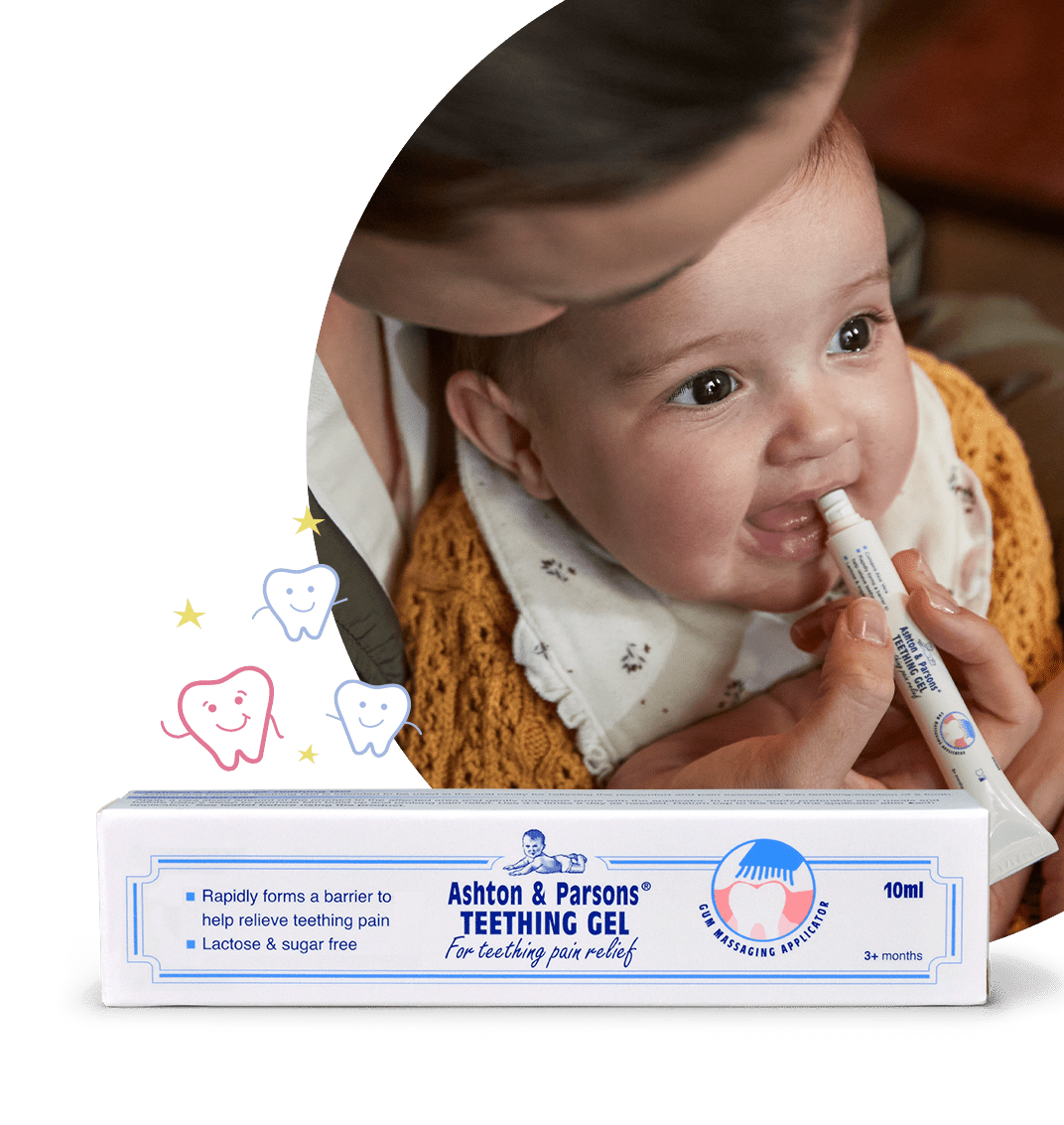Tracey Stone: Teething and Tooth Grinding
Tracey Stone is a Health Visitor, and able to provide expert guidance on all things teething. Currently a registered practising Health Visitor in the community working with children and their families, Tracey also supports families in the online community with issues related to health and wellbeing. She is a qualified Paediatric Nurse with over 20 years’ experience and a Nurse Prescriber. She has also helped establish a respite service for Children with Special Needs.

Your little ones new teeth are an exciting change for both of you. Once they arrive it’s possible you may begin to hear a new sound coming from their mouths like two hard surfaces being rubbed together. It may make you cringe like nails down a blackboard! The sound is more than likely down to teeth grinding, (the posh word is Bruxism), and it’s suggested about a third of children will grind at some point.
Grinding may start as soon as their first two little teeth appear, as its a new and exciting sensation. It’s also another way for them to explore the changes to their little bodies. Younger babies generally do it during the daytime as they begin to learn what their teeth feel like, plus it makes a noise which is likely to make them want to do it over and over! If older children grind, they generally do it while they are sleeping.
Grinding during the early stages of teething may offer relief to painful tender gums through this rubbing action. Their teeth will have sharp edges, which will feel nice and soothing on their gums. As your child’s first molars erupt between 12 and 16 months, then their second molars between 20 and 30 months it may well happen again. Teeth come through when they are ready, and not always at the same time on both sides, leaving their mouths feeling unbalanced or misaligned. This wonky sensation could also encourage your little one to grind. If your child is grinding during their teething time, it is likely stop once their teeth are through. There’s always a possibility it may restart again when their permanent teeth arrive at around the age of 6 years, so don’t be concerned if it does.
Grinding most often happens at night for older babies and children, so if you’re asleep you may be unaware it is happening. Grinding will have an effect on the quality and quantity of their sleep, and often little teeth grinders can be cranky and irritable in the morning. If your LO is tired it may also have a knock-on effect throughout their day, perhaps not playing well or being overly clingy. It’s worth being mindful that grinding their new teeth may be responsible for their altered mood.
Grinding can also occur for other reasons, other than exploration and relief during teething. Pain perhaps from earache, or sometimes from tension if your child is stressed. Grinding itself may cause other problems like headaches or pain around the ear from jaw clenching at night. Prolonged grinding can cause wear and tear on enamel, painful chewing and sensitivity to hot and cold, which could all be unpleasant for your little one.
So how can you help? Always use a good toothpaste with fluoride for an all-round healthy mouth as soon as their teeth appear. For teething tooth grinders, the normal recommended remedies for teething may help, Have a look here for some good ideas.
If your child seems stressed or overtired a good wind down bedtime routine at night will help. Perhaps explore if anything else is upsetting your child which may need your care and understanding. Mouth guards are an option but not until your child has started to get permanent teeth from the age of approximately 6 years onwards.
It is reassuring to know short term grinding is unlikely to cause harm and sounds a lot worse than it actually is. Most will grow out of it before any long-term damage is done, but do tell your dentist if you think your child is grinding for their ongoing monitoring and care. Asking your GP or HV for support if you are concerned about your child’s health, noisy breathing or related worries will also put your mind at ease.
General advice only, Tracey does not endorse the brand.





